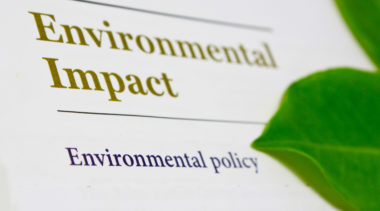Julian Morris is a senior fellow at Reason Foundation.
Morris is currently the director of innovation policy at the International Center for Law and Economics. He graduated from the University of Edinburgh with a master's degree in economics. Graduate studies at University College London, Cambridge University and the University of Westminster resulted in two further master's degrees and a Graduate Diploma in Law (equivalent to the academic component of a JD).
Morris is the author of dozens of scholarly articles on issues ranging from the morality of free trade to the regulation of the Internet, although his academic research has focused primarily on the relationship between institutions, economic development and environmental protection. He has also edited several books and co-edited the Electronic Journal of Sustainable Development.
Before joining Reason, Morris was executive director of International Policy Network, a London-based think tank which he co-founded. Before that, he ran the environment and technology programme at the Institute of Economic Affairs, also in London. Morris has also been a visiting professor in the Department of International Studies at the University of Buckingham (UK).
-
The FDA has decimated the e-cigarette market
The FDA has not authorized a single e-cigarette for sale and denied more than a million vape products from the market.
-
Comments on the proposed pesticide experimental use permit for Oxitec
The EPA should move forward as quickly as possible in approving Oxitec’s request for an experimental use permit to undertake additional field trials in Florida and California.
-
Cities and States Need to Better Share Testing, Tracing, and Coronavirus Risk Information With Public
Sharing more comprehensive information on testing and areas with positive tests would help make citizens confident they can safely resume activities while continuing to take appropriate actions to manage risks.
-
Reason Foundation Comment: Update to the Regulations Implementing the Procedural Provisions of the National Environmental Policy Act. CEQ–2019–0003 (85 FR 1684)
The proposed reforms will likely help streamline the NEPA process and result in fewer preliminary injunctions being issued by courts.
-
Fuel Economy Standards Hurt Consumers and the Economy
Mileage-based user fees are better suited to address the pollution associated with vehicle use.
-
Reducing Red Tape Would Expand Rural Access to High-Speed Broadband
Widespread installation of 5G using small cells could dramatically improve the lives of people living in rural areas.
-
Comment on Proposed Pesticide Experimental Use Permits
Unfounded fears about this safe technology should not prevent it being implemented as part of the solution to a serious health problem.
-
Federal Fuel Economy Standards are Costly, Inefficient and Harm the Environment
New vehicles sold in the U.S. must comply with Corporate Average Fuel Economy (CAFE) standards to reduce greenhouse gas emissions despite studies showing that these standards are both costly and inefficient.
-
Comment on FCC Proposal Restoring Internet Freedom
Ensuring that the Internet remains a place of freedom.
-
Reason Foundation Comment on the Regulatory Burden Reduction Request for Information
In many cases, it would be better for DOE to scrap its rules and allow private market actors to develop standards and information tools in their place.
-
Congress Has an Opportunity to Repeal Durbin’s Debit Card Price Controls
In February, the White House issued a set of “Core Principles" for financial services reform and a good place to start would be for Congress to repeal the so-called Durbin Amendment of the Dodd-Frank Act.
-
Adding Fuel to Forest Fires
In the past three decades, the area burned by wildfires in the U.S. each year has grown dramatically, while the number of fires has remained roughly constant.
-
Climate Pact Likely to Do More Harm Than Good
The commitments made by governments in the Paris Agreement would divert trillions of dollars into lower-carbon forms of energy, and away from investments in other innovations.
-
Obama’s Clean Power Plan Is Bad News for California
The White House recently released its Clean Power Plan, which aims to reduce the nation’s carbon dioxide emissions by 32 percent by 2030.
-
The Social Cost of Carbon Underestimates Human Ingenuity, Overestimates Climate Sensitivity
The Clean Power Plan and climate change models assume the climate is more sensitive to increases in carbon dioxide than is actually the case
-
Rebutting the Obama Administration’s Clean Power Plan’s Claims
Plan is likely to harm public health, increase energy bills, destroy jobs, and cause blackouts in communities across the country
-
What California Can Learn from Australia’s Water Reforms
While government has a role to play in the definition, enforcement, and tradability of water rights, it should otherwise get out of the way












